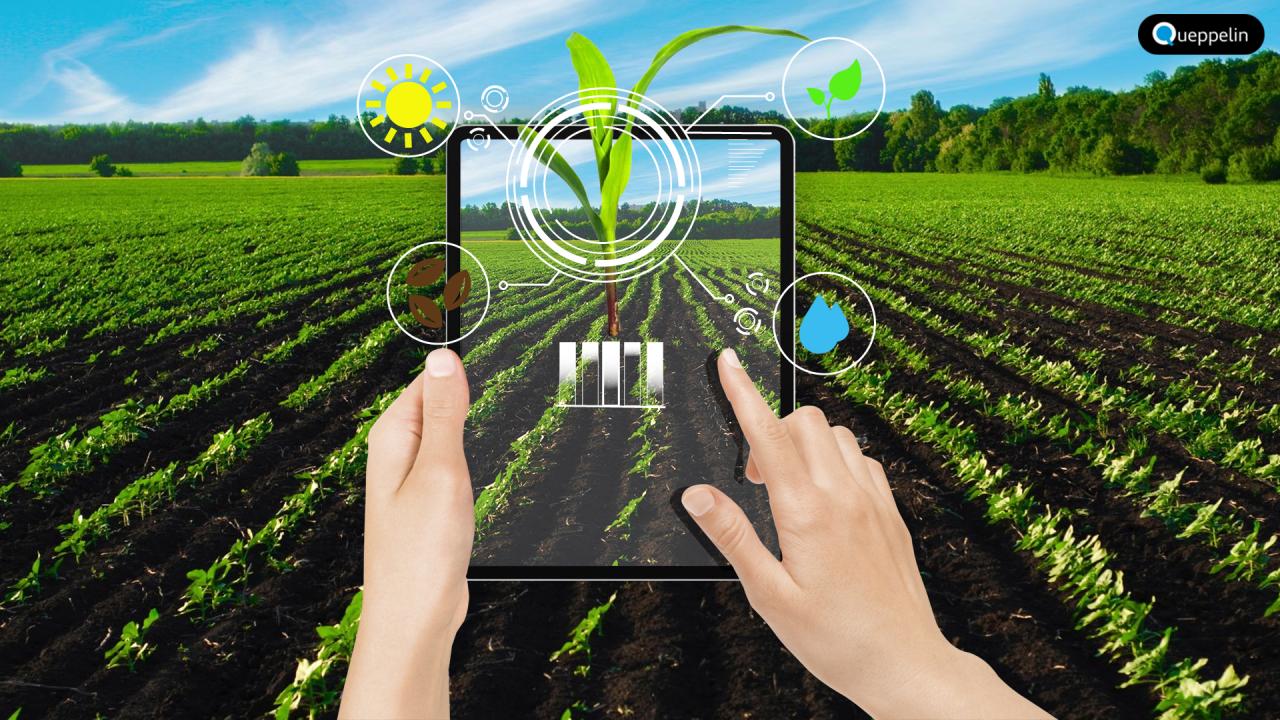

The Role of AI in Smart Agriculture and Farming
The world’s population is projected to reach 9.7 billion by 2050, necessitating a significant increase in food production to meet the growing demand. However, the agricultural sector is faced with numerous challenges, including climate change, water scarcity, and soil degradation, which can hinder its ability to meet this demand. Fortunately, advancements in Artificial Intelligence (AI) are transforming the agricultural sector, enabling farmers to increase crop yields, reduce costs, and promote sustainable farming practices.
How AI is impacting agriculture
AI is revolutionizing agriculture by providing farmers with valuable insights and data-driven decisions to optimize crop growth, reduce waste, and improve overall efficiency. Here are some ways AI is transforming the agricultural sector:
- Precision Farming: AI-powered precision farming involves using sensors, drones, and satellite imaging to collect data on soil health, moisture levels, temperature, and crop growth. This data is then analyzed to provide farmers with insights on the optimal time to plant, water, and harvest crops, reducing waste and increasing yields.
- Crop Prediction and Yield Management: AI algorithms can analyze historical climate data, soil conditions, and crop growth patterns to predict crop yields and identify areas that require improvement. This enables farmers to take proactive measures to prevent crop failures and optimize yields.
- Autonomous Farming: AI-powered autonomous farming uses self-driving tractors, drones, and other machines to automate farming tasks, such as planting, spraying, and harvesting. This increases efficiency, reduces labor costs, and minimizes the risk of human error.
- Livestock Monitoring: AI-powered sensors can monitor the health and behavior of livestock, enabling farmers to detect early signs of illness or stress. This enables farmers to provide targeted treatment, reducing the use of antibiotics and improving animal welfare.
- Weather Forecasting: AI-powered weather forecasting systems can provide farmers with accurate and localized weather forecasts, enabling them to make informed decisions about planting, harvesting, and irrigation.
Benefits of AI in agriculture
The use of AI in agriculture has numerous benefits, including:
- Increased Efficiency: AI automates many farming tasks, reducing the time and labor required to manage crops and livestock.
- Improved Yields: AI-powered precision farming and crop prediction enable farmers to optimize crop growth, leading to higher yields and reduced waste.
- Reduced Costs: AI-powered autonomous farming reduces labor costs, while AI-powered weather forecasting and precision farming minimize the use of resources such as water and fertilizers.
- Enhanced Sustainability: AI promotes sustainable farming practices by reducing the use of chemical fertilizers and pesticides, conserving water, and promoting more efficient use of resources.
- Improved Decision-Making: AI provides farmers with data-driven insights, enabling them to make informed decisions about their crops and livestock.
Challenges and limitations of AI in agriculture
While AI has the potential to revolutionize agriculture, there are several challenges and limitations to its adoption, including:
- Data Quality: AI requires high-quality data to provide accurate insights. However, collecting and analyzing data from diverse sources can be challenging.
- Infrastructure: AI-powered farming requires significant investments in infrastructure, including sensors, drones, and satellite imaging technology.
- Skills and Training: Farmers may require training and education to effectively use AI-powered tools and systems.
- Cybersecurity: AI-powered systems can be vulnerable to cyber threats, which can compromise farm operations and data.
- Regulatory Frameworks: There is a need for regulatory frameworks to govern the use of AI in agriculture, ensuring that its adoption is ethical and sustainable.
Conclusion
AI has the potential to transform the agricultural sector, enabling farmers to increase crop yields, reduce costs, and promote sustainable farming practices. While there are challenges and limitations to its adoption, the benefits of AI in agriculture are undeniable. As the global population continues to grow, the role of AI in smart agriculture and farming will become increasingly important. It is essential that we continue to invest in AI research and development, addressing the challenges and limitations to its adoption, and promoting its widespread adoption in the agricultural sector.
Future of AI in agriculture
As AI continues to evolve, we can expect to see even more innovative applications in agriculture, including:
- Farm Robotics: AI-powered farm robots will become more advanced, enabling them to perform complex tasks such as pruning, weeding, and harvesting.
- Vertical Farming: AI will play a critical role in vertical farming, enabling farmers to optimize crop growth in indoor environments.
- AI-powered Farm-to-Table: AI will enable farmers to optimize the entire supply chain, from planting to delivery, ensuring that produce is fresher and more sustainable.
- Farm-to-Consumer: AI will enable consumers to purchase produce directly from farmers, reducing waste and increasing food security.
In conclusion, the role of AI in smart agriculture and farming is critical to the future of food production. As the global population continues to grow, we must invest in AI research and development, addressing the challenges and limitations to its adoption, and promoting its widespread adoption in the agricultural sector.




